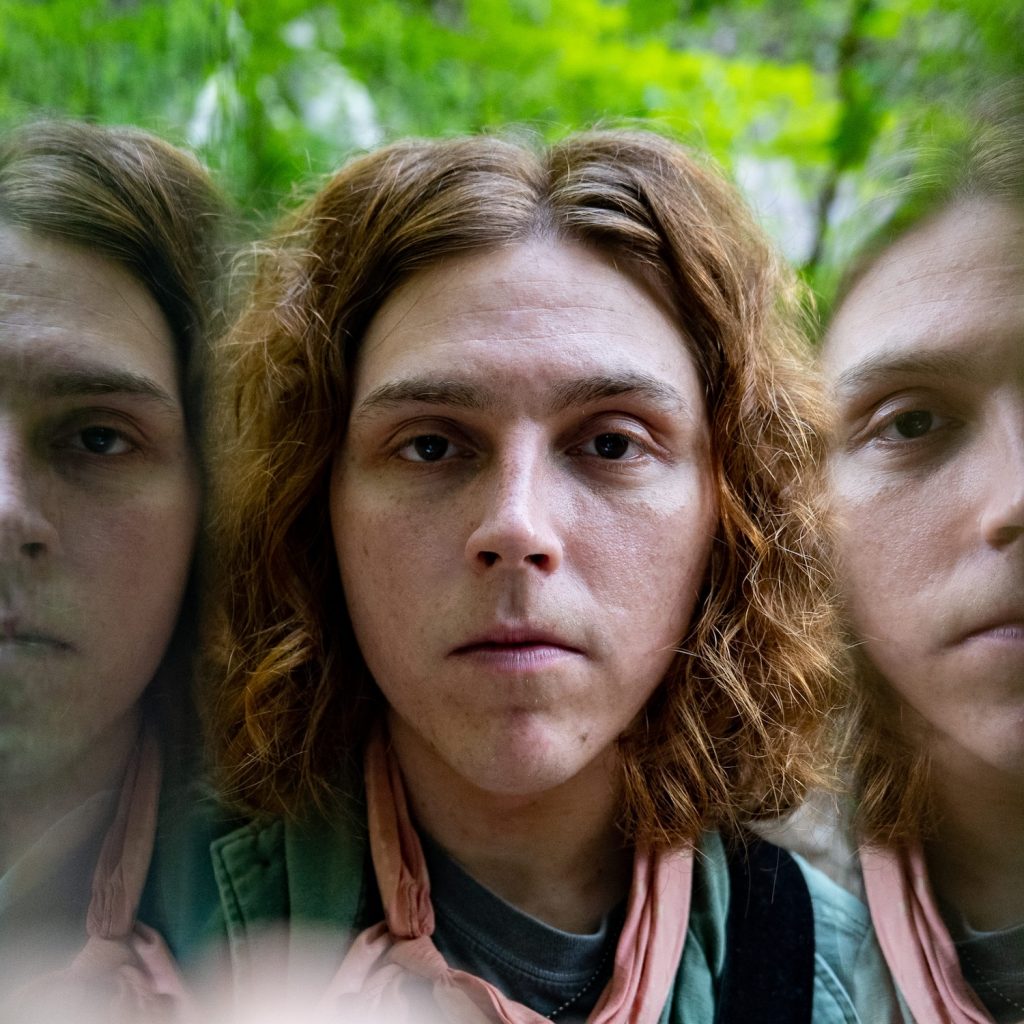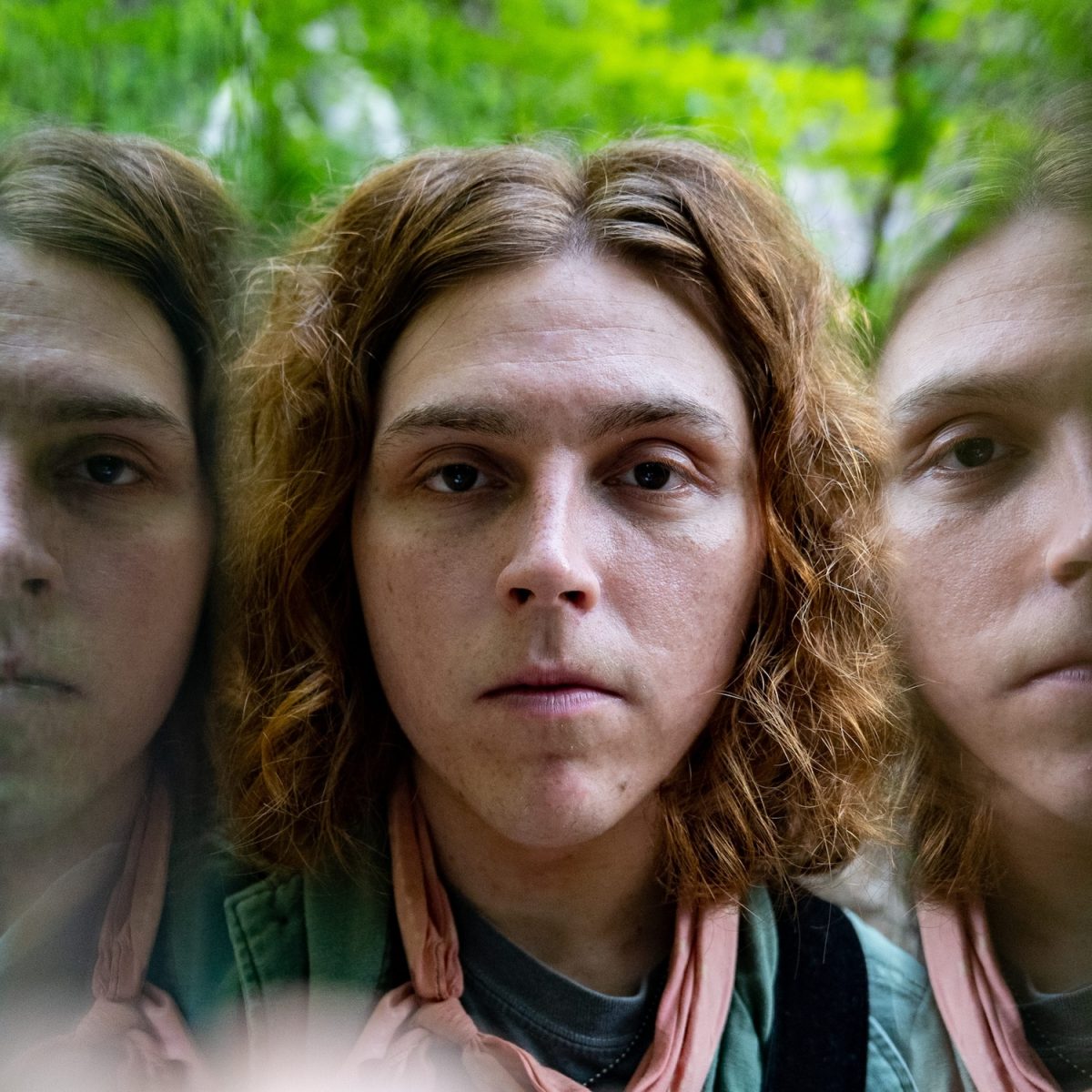
With his cosmic-country credo tucked under one arm and a quirky intellect under the other, Daniel Donato has become a sort of junior sage for Nashville’s creative fringes. He’s also a late bloomer, just releasing Reflector (Retrace Music), his first collection of all-original material, after several busy years as a guitar wiz for hire and touring solo act. Meant to be consumed over four sides, Reflector’s 15 tracks combine for 65 minutes of music that touches on an array of influences, from the Allman Brothers, Bob Dylan and the Dead to Merle Haggard, Willie Nelson and Bill Monroe.
Far from a sprawling and unfocused affair, Reflector is grounded in rock-solid songwriting and the refined producer’s touch of seven-time Grammy winner Vance Powell (Chris Stapleton, Phish, Jack White). A persistent undercurrent of melody and soul counterbalances the twang and occasional guitar noodling—especially on standouts like “Hi-Country,” “Dance In The Desert” and “Weathervane.” To wit, even the extended jams that cap the nearly eight-minute “Gotta Get Southbound” and album finale “Dance In The Desert Part 2” have a certain focus and sonic panache.
A good deal wiser and more reflective than his 28 years would indicate, Donato has apparently learned a lot while muddling his way through this thing we call life. Over the course of our 36-minute interview, he imparted some real gems. Here are six:
UNIVERSAL TRUTH #1: More is better.
“The 15 songs on Reflector made sense in terms of the psychological environment we exist in today. In terms of studio efforts, I really think you have to give people a lot of information now, because the attention span is long, but the consideration span is short. People say attention spans are short, but I disagree. All the statistics point to people having a vast, sophisticated attention span—but only if the content is worth being considered. If you make something people deem worthy to consider, their attention span is vast and large and loving.”
UNIVERSAL TRUTH #2: It’s all about the journey.
“Reflector follows the arc of Joseph Campbell’s ‘the hero’s journey.’ You start out in a place of order, you find yourself in a place of chaos, and then there’s specific elements that happen within those arcs so that you arrive back in a place of order. I’d encourage people to listen to the whole album in sequence, because we spent a lot of time on the sequence.”
UNIVERSAL TRUTH #3: Mind-expanding drugs are overrated.
“I love substances—I love psychedelics. But I’ve done enough of them to know that the narrative that it turns you on to anything is just a total crock of bullshit. The amount of time I’ve seen somebody stoned out of their mind at one of our shows and not the hold the door for someone … not being within the frequency of the golden rule … They just miss the point.”
UNIVERSAL TRUTH #4: A good jam has its place, but …
“Naturally, the improv demographic is going to dig what we do. But that wasn’t the place we wanted to set up camp on Reflector. We wanted to create our own garden within the forest that’s the music business. Country music really has a great provision for amazing albums. The jam-band scene historically doesn’t. The Dead made the two best jam-band albums: American Beauty and Workingman’s Dead. Those are essentially country records. That’s the correspondence principle that kind of exists with cosmic country—the duality. When you see it live, it’s a completely different thing. When it’s a crystalized presentation on an album, that’s when it’s not alive. It’s a Polaroid of the spirit—not the living spirit. So it needs to be framed differently.”
UNIVERSAL TRUTH #5: Songwriting isn’t easy.
“It’s so hard. It’s not like guitar. I feel the same now as I did when I wrote my first song when I was 12. I feel just as worried, anxious and completely disorganized 16 years later. But it’s also immensely reverential and spiritual and meaningful.”
UNIVERSAL TRUTH #6: Nothing beats the truth.
“I made this album with the intention for it to be truthful, beautiful and good. At least I hope I did that. I know my band certainly did, and I know Vance Powell certainly did. How you want to consume the truth doesn’t really matter—whether you consume part of it or the whole of it. The truth is an infinite panorama of ever-unfolding experience. It transcends form and pattern, really.”
—Hobart Rowland






